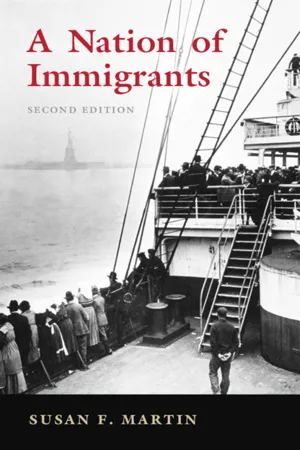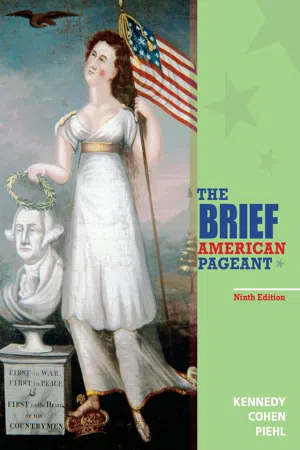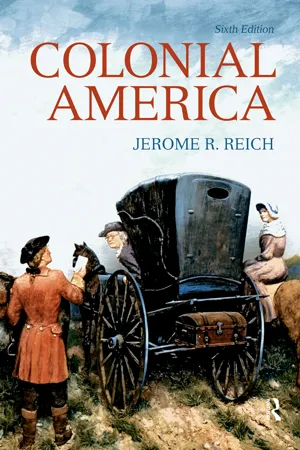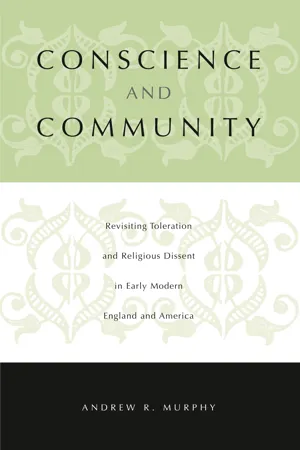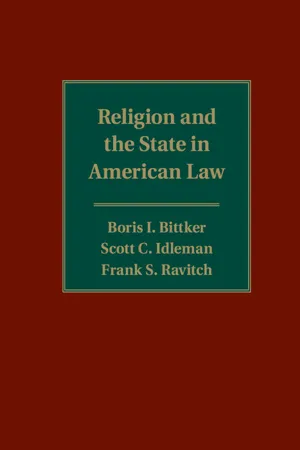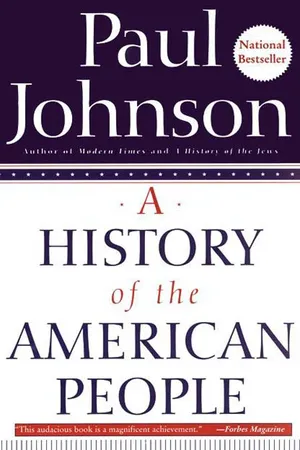History
Massachusetts Bay Colony
The Massachusetts Bay Colony was a British settlement established in the early 17th century in present-day Massachusetts. It was founded by a group of Puritan settlers seeking religious freedom and a new way of life. The colony played a significant role in the development of the New England region and had a lasting impact on American history.
Written by Perlego with AI-assistance
Related key terms
1 of 5
6 Key excerpts on "Massachusetts Bay Colony"
- eBook - PDF
- Susan F. Martin(Author)
- 2021(Publication Date)
- Cambridge University Press(Publisher)
After a celebrated trial – one that raised as many issues of sexism as of religion – she was exiled, at first moving to Williams’s colony of Rhode Island and then to what is now New York, where she was killed in an Indian attack. The third assault on the Massachusetts Bay covenant came from a group of Quakers who defied a ban on their reentry after expul- sion from Massachusetts Bay and were subsequently hanged by the authorities. the founding of the Massachusetts Bay Colony As was true in Virginia, the Massachusetts Bay Colony had its origins in a commercial enterprise, the Massachusetts Bay Company, which succeeded two earlier enterprises, the Council for New England and the New England Company. The first permanent settlement in what became Massachusetts was the Plymouth Plantation – established in 1620 by the Pilgrims, a group of Separatists from the Church of England who had first found refuge in the Netherlands and then in the New World. Although the Pilgrims had intended to settle in Virginia, after exploring what is now Cape Cod, they decided to remain in the north. They established a governing system based on the Mayflower Compact, under which the forty-one adult signees (all male) stated: Having undertaken for the Glory of God, and Advancement of the Christian Faith, and the Honour of our King and Country, a Voyage to plant the first Colony in the northern Parts of Virginia; Do by these Presents, solemnly and mutually, in the Presence of God and one another, covenant and combine ourselves together into a civil Body Politick, for our better Ordering and Preservation, and Furtherance of the Ends aforesaid: And by Virtue hereof do enact, constitute, and frame, such just and equal Laws, Ordinances, Acts, Constitutions, and Officers, from time to time, as shall be thought most meet and The Founding of the Massachusetts Bay Colony 31 convenient for the general Good of the Colony; unto which we promise all due Submission and Obedience. - eBook - PDF
The Brief American Pageant
A History of the Republic
- David Kennedy, Lizabeth Cohen, Mel Piehl, , David Kennedy, Lizabeth Cohen, Mel Piehl(Authors)
- 2015(Publication Date)
- Cengage Learning EMEA(Publisher)
40 CHAPTER 3 part of Massachusetts for nearly a century and a half before becoming a separate state. In 1641 the Bay Colony also annexed its immediate northern neighbor, New Hampshire, under a strained interpretation of the Massachusetts charter. The king, annoyed by this display of greed, separated New Hampshire from Massachusetts in 1679 and made it a royal colony. Puritans Versus Indians The spread of English settlements inevitably led to clashes with the Indians, who were particularly weak in New England. Shortly before the Pilgrims arrived at Plymouth in 1620, an epidemic, probably triggered by contact with English fisher-men, had swept through the coastal tribes and killed more than three-fourths of the native people. The deserted fields and scattered skulls and bones that greeted the Plymouth set-tlers provided grim evidence of the impact of the disease. In no position to resist the English incursion, the local Wampanoag Indians at first befriended the settlers. Cultural accommodation was facilitated by Squanto, a Wampanoag who had learned English from a ship’s captain who had kid-napped him some years earlier. The Wampanoag chieftain Massasoit signed a treaty with the Plymouth Pilgrims in 1621 and helped them celebrate the first Thanksgiving after the autumn harvests that same year. As more English settlers arrived and pushed inland into the Connecticut River valley, confrontations between Indians and whites ruptured these peaceful relations. Hostili-ties exploded in 1637 between the settlers and the powerful Pequot tribe. In the brutal Pequot War the English militiamen and their Narragansett Indian allies virtually annihi-lated the Pequots. During the ensuing four decades of tense peace, the Puritans made some feeble efforts to convert the remaining Indians to Christianity. - eBook - ePub
- Jerome R Reich, Jerome Reich(Authors)
- 2016(Publication Date)
- Routledge(Publisher)
The “others” for whom the Pilgrims were the “stepping-stones” were the Puritans. In 1623 the Council of New England granted land to the Dorchester Company to plant a colony of fishermen in what is now Massachusetts. The experiment failed, but some of the settlers remained and founded the town of Salem. In 1628 a group of Puritan merchants formed the Company of New England and sent an additional group of settlers to Salem under the leadership of John Endecott. The following year the New England Company obtained a new charter from Charles I changing its name to the Massachusetts Bay Company and granting it the right to govern the territory under its jurisdiction. Several factors impelled the Puritans to take speedy advantage of this new charter. Archbishop Laud insisted that Anglican practices be followed to the letter in every church, and ministers with Puritan leanings be dismissed. In 1628 the king had just dissolved Parliament and had made it clear that he intended to rule the nation, levy taxes, and conduct what the Puritans considered a pro-Catholic foreign policy without any interference. Lastly, during the 1620s a depression in the cloth industry (in addition to the previously discussed enclosure movement and inflation) brought great economic distress to the southern and eastern counties of England, where the majority of Puritans lived.The man who would become the leader of the Massachusetts Bay Colony was John Winthrop. Winthrop received a legal education at Cambridge, held a royal judicial post, and was a substantial landowner in Suffolk County. However, by the end of the 1620s, he no longer held any office and was troubled by debt. Winthrop was well aware of the practical reasons for settling in America, but he had strong religious motivation as well. As he wrote in his The History of New England from 1630 to 1649 - eBook - PDF
Conscience and Community
Revisiting Toleration and Religious Dissent in Early Modern England and America
- Andrew R. Murphy(Author)
- 2001(Publication Date)
- Penn State University Press(Publisher)
2 MASSACHUSETTS BAY Puritanism and the Politics of Religious Dissent It is objected, that the magistrates may not appoint a minister of God, what he should teach: admit so much, yet he may limit him what he may not teach, if he forbid him to teach heresy or sedition. . . . Beside, every truth is not seasonable at all times. —John Winthrop, Short Story Consider . . . if the Lord Jesus were himself in person in Old or New England, what church, what ministry, what worship, what government, he would set up, and what persecution he would practice toward them that would not receive him? —Roger Williams, Cotton’s Letter Examined The Massachusetts Bay Colony has long been viewed as perhaps the quin- tessential example of a colonial regime that during its early years effectively suppressed claims to religious toleration and liberty of conscience. The prose- cution and expulsion of Roger Williams and Anne Hutchinson during the 1630s, along with the severe punishments inflicted upon Quakers and the more or less successful resistance to increasingly widespread Baptist ideas during the 1650s, it is argued, show how decisively and effectively colonial leaders rejected religious freedom. Traditional interpretations of these disputes have fallen along two main lines. Much scholarship, often bordering on the hagiographic, highlights the troublesome, contentious nature of the dissidents and maintains that the punishments were a necessary, perhaps laudable, step to preserve the colony’s very existence. 1 Other scholars, reacting against overly charitable interpretations of the suppression of religious dissenters, call Massa- chusetts an intolerant theocracy that punished those aspiring to liberty. 2 I reject both of these views. Certainly punishment for political and social disruption, when such actions derive from religious commitment, raises general questions of religious liberty. Religious dissent in Massachusetts Bay was punished, often brutally. - eBook - PDF
- Boris I. Bittker, Scott C. Idleman, Frank S. Ravitch(Authors)
- 2015(Publication Date)
- Cambridge University Press(Publisher)
Congregationalism was recognized locally as the established church of Massachusetts, 34 but before the Revolution, the Puritans avoided open challenges to the Church of England’s sta- tus. 35 Congregationalism’s close link between religious faith and civil government was deputy governor of the colony, who having once recognized the authority of the Anglican Church by 1633 believed that doing so would “pollute” him). 32 For an account of the persecution of the Quakers in Massachusetts during the seventeenth century, see Rufus M. Jones, The Quakers in the American Colonies 63–89 (Macmillan & Co. 1911). 33 For a description of the differing beliefs of the Pilgrims, who settled Plymouth Colony, and the Puritans, who established Massachusetts Bay Colony, and the subsequent establishment of the Congregational Church as the ecclesiastical authority of the region due to the unification of both colonies in 1691, see Jacob Conrad Meyer, Church and State in Massachusetts: From 1740 to 1833, at 1–31 (W. Reserve Univ. Press 1930). See also Adams, supra note 1; William Bradford, Of Plymouth Plantation, 1620–1647 (Samuel Eliot Morison ed., Knopf 1952); Cobb, supra note 2, at 133–48. By an irony of fate, the tiny band of Pilgrims who landed at Plymouth Rock are memorialized by Plymouth Church (in Brooklyn, New York), nineteenth-century Protestant Christianity’s most-famous locale. See Lyman Abbott, Henry Ward Beecher: A Sketch of His Career, with Analyses of His Power as Preacher, Lecturer, Orator and Journalist and Incidents and Reminiscences of His Life (Honolulu, U. P. Pacific 2002) (1882). An unlikely descendant of the Puritan ethos, who epitomized the burgeoning nation’s evolution in religious sentiment and thought, was Henry Ward Beecher, son of Calvinist minister Lyman Beecher, himself a charismatic preacher described as “a combination of St. - eBook - ePub
- Paul Johnson(Author)
- 2009(Publication Date)
- Harper(Publisher)
44The success of this venture led to a third Puritan expedition in 1628 which produced the settlement of Salem. A key date was March 4, 1629 when the organizers of these voyages formed the Massachusetts Bay Company, under royal charter, which had authority to transfer itself wholly to the American side of the ocean. It promptly dispatched six ships with 350 people and large supplies of provisions, tools, and arms. But that was as nothing to a great fleet which set out in 1630, with 700 settlers aboard. This was the first of a great series of convoys, numbering 200 ships in all, which throughout the 1630s transported 20,000 Englishmen and women to New England. Thus in 1634 William Whiteway noted in his Dorchester diary: ‘This summer there went over to [New England] at least 20 sail of ships and in them 2,000 planters, from the ports of Weymouth and Plymouth alone.’ It was the greatest outward movement, so far, in English history.The most important of these early convoys, as setting a new pattern, was the one in 1630 under the leadership of John Winthrop. He was the outstanding figure of the Puritan voyages, the first great American. Son of a Suffolk squire, and neighbor and friend of Warwick, he was tall and powerful, with a long, lugubrious, stern, impressive face, penetrating eyes, prominent nose, and high brow. He was another Cambridge man, trained as a lawyer in Gray’s Inn, sat as a justice of the peace, and took up a job in the Court of Wards but lost it because of his uncompromising Puritan views. He was a sad but exalted man, who had buried two beloved wives and reasoned to himself that ‘The life which is most exercised with tryalls and temptations is the sweetest and may prove the safest.’45 He came to the conclusion that overcrowded, irreligious, ill-governed England was a lost cause, and New England the solution, setting his views down fiercely in his General Observations for the Plantation of New England
Index pages curate the most relevant extracts from our library of academic textbooks. They’ve been created using an in-house natural language model (NLM), each adding context and meaning to key research topics.
